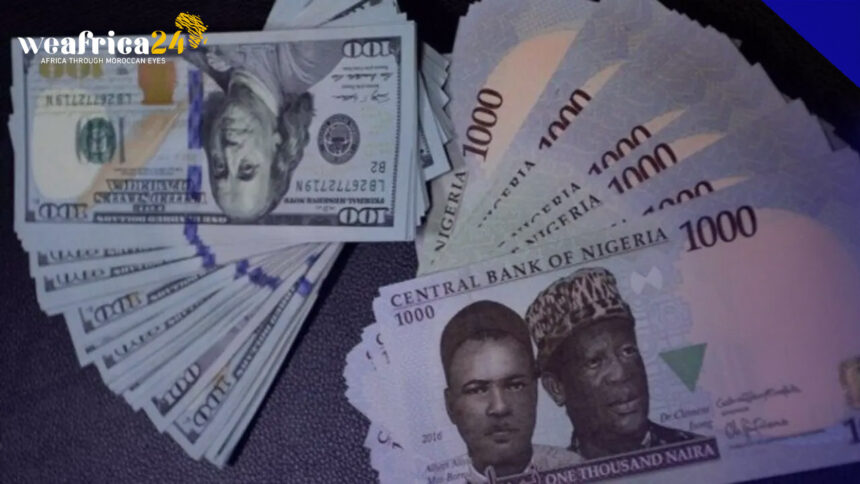Nigeria’s currency, the naira, experienced a significant decline, reaching a historic low of N1,534.39 per dollar at the official foreign exchange (FX) market on Monday. The sharp depreciation was attributed to heightened demand amid a shortage of foreign exchange.
Data from the FMDQ revealed that the naira depreciated by 4.19%, with one dollar quoted at N1,534.39 compared to N1,469.97 on Friday at the Nigerian Autonomous Foreign Exchange Market (NAFEM).
Additionally, the naira lost 1.33% of its value at the parallel market, commonly known as the black market, where the dollar traded at N1,505 on Monday, down from N1,485 on Friday.
The widening gap between the official and black market rates, currently standing at N29, reflects the persisting challenges in Nigeria’s foreign exchange market.
Concerns about Nigeria’s economic outlook have been amplified by projections from the International Monetary Fund (IMF), forecasting a notable decline in the country’s foreign reserves to $24 billion by 2024. This prediction underscores potential economic challenges on the horizon for Africa’s largest economy.
As of February 8, 2024, Nigeria’s foreign currency reserves stood at $3.11 billion, according to data from the Central Bank of Nigeria (CBN) website, highlighting the urgency of addressing the country’s dwindling reserves.
In response to the economic challenges, the CBN introduced revised guidelines on inbound money transfers in a circular issued on January 31, 2024. These directives impose stringent restrictions on International Money Transfer Operators (IMTOs) and seek to regulate the flow of funds into Nigeria more rigorously.
The ongoing depreciation of the naira and the regulatory measures implemented by the CBN underscore the need for concerted efforts to stabilize Nigeria’s foreign exchange market and address underlying economic vulnerabilities. As stakeholders navigate these challenges, a proactive approach to fiscal and monetary policy management will be crucial in safeguarding Nigeria’s economic stability and resilience.







